Author: Susan George
Susan Hubbell • Deacon
January 9, 2025Shortly after I rejoined Derry Church, I was pleased to be asked to serve on the Board of Deacons. The Deacons are the caregivers of the church, the front line of people who are contacted when a church member or friend needs help. Since this is the type of thing I enjoy doing anyway, serving as a Deacon seemed like a natural.
After our ordination, we had our first meeting where we were asked to select our subcommittee: health, business, or personal care. I chose personal care, which gave me the opportunity to deliver meals and visit sick or homebound members. Initially, this kept me pretty busy as there were several Derry members who recently had been sick or hospitalized, and a home delivered meal would be very helpful to them. I made and delivered A LOT of vegetable and chicken noodle soup! Delivering meals was probably my favorite responsibility as a Deacon because it gave me the opportunity to meet people that otherwise I might not have met, and I made a lot of good friends.
The most difficult responsibility I had as a Deacon was overseeing a Shepherd Group. For most Deacons, this is a group of people who live close by and could easily be contacted or visited. Since I live in Carlisle, my Shepherd Group is made up of all the members who lived outside of the Hershey-Hummelstown-Palmyra area and covered about a 30+ mile radius. Fortunately, I worked with an outstanding (non Deacon) Shepherd Group Leader who stepped up and helped when contacts were needed.
As my time on the Board of Deacons comes to an end, I realize that my involvement provided me with numerous opportunities to meet and get to know several other church members, and this helped me to feel part of the church very quickly. I will continue to deliver meals and visit homebound members because “that’s what I do,” but I will always remain grateful for my time as a Deacon. As in many other church activities, you gain far more than you give.
Karen Leader • Derry Member
January 2, 2025Editor’s Note: On the first Thursday of each month, the eNews feature article highlights the mission focus for the month. In January we’re lifting up women’s equality, justice and opportunity.
For years, Derry Church has supported many missions focused on women’s issues. Bethesda Women and Children’s Mission has been one of these for more than 20 years. The shelter offers lodging, meals, clothing and other basic needs for women in addiction recovery and homelessness who need hope and healing, stability and safety.
In this Christ-centered shelter, women and children are offered a comfortable room and a chance for a new beginning in life. Residents are also given courses in nutrition and parenting and dress management. Classes also include counseling for addiction, Bible study, personal finances and budgeting. There are special programs for children and arts and crafts. These programs hopefully offer life- changing support either in a short term recovery program or a longer transitional housing program before moving out on their own again.
Derry Church not only supports Bethesda financially but also by providing lunch for women and children in the program.
Derry’s Mission & Peace Committee invites you to sign up to make food, serve lunch and talk with the residents. For our volunteers, this has been a rewarding experience to learn and understand more about addiction and homelessness by hearing their stories! Contact me for more information.
Rev. Stephen McKinney-Whitaker • Pastor
December 19, 2024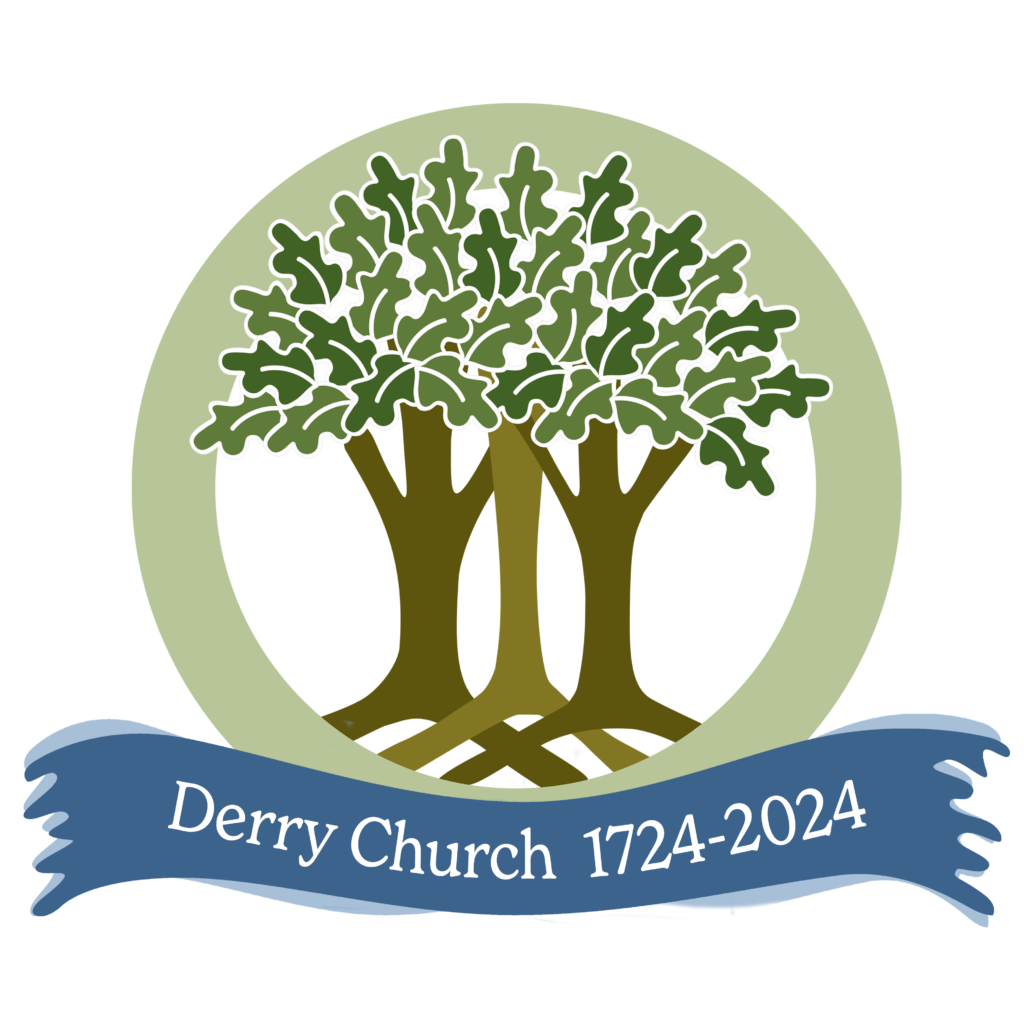
Derry’s 300th anniversary year is coming to a close. We’ve learned, traveled, sung, gathered, served, worshiped, and celebrated. Thank you all for the ways you have made this year such a success through your participation and giving. I have memories that will last a lifetime from this year. I hope you do, too.
I especially want to thank Pam Whitenack for her planning and leadership of the Derry 300 Committee. This year has been an enormous undertaking and she has led with energy, intelligence, imagination, and love. Many others contributed to the success of our anniversary year: I’m grateful to the Derry 300 Committee, the Heritage Committee, the Session, and many volunteers.
This 300th anniversary wasn’t just about Derry’s past, because Derry isn’t a church of the past. It isn’t something we’ll just look back on and remember. Derry is alive and active now, and Derry will be alive and active in the future. We have been celebrating Derry’s long history, its present, and its future. I’m just as excited about Derry’s 301st year of ministry in 2025 as I have been about this year, because good things are happening and will continue to happen.
In just a few days we will celebrate the anniversary of God coming to us in the flesh to dwell among us. We don’t just remember that Christ came to earth long ago. We celebrate that Christ still comes to us and is present among us. Christmas isn’t a was, but an is, and ever will be!
So, while we remember that something wonderful happened in Bethlehem over 2,000 years ago, we also remember all the ways Christ has been alive and active in this world throughout those 2,000 years — including the 300 years that Derry Church has existed. And we will give thanks that even as Christ is with and for us today, he will continue to be with us tomorrow and in the new year.
I wish you one more happy 300th Derry anniversary and a very merry Christmas. May we continue to celebrate and give thanks for Derry, and for Christ, through the end of this year, into next year, and throughout our lives.
God is with us and God is for us. Love comes to us. That’s the message of Christmas.
It’s still real, it’s still relevant, it’s still a promise, and it’s still true.
Pam Whitenack • Chair, Derry 300 Committee
December 12, 2024Derry Church’s mission is to Proclaim God’s Word, Share God’s Love, and Practice God’s Justice. While the means of pursuing this mission have changed over the years, these words describe the goals of Derry Church since its inception.
Mission work has evolved and expanded since Derry Church was founded in 1724. There is not much information about Derry’s early years since many of the church’s earliest records were destroyed in a fire in 1895. As a new church on the American frontier, it is likely that Derry Church would have been a recipient rather than a donor to mission work. However, by the 1790s, the region had become more settled. The Derry Church Trustees’ minute book, covering the years 1794-1895, records the financial activities of the church, including a 1794 contribution of $4 to enable missionaries to preach the gospel to the frontier.
Minutes, Board of Trustees, Derry Presbyterian Church – April 28, 1794
Resolved that the sum of 4 dollars be contributed to enable missionaries to preach the gospel to the frontier.
Much of the effort to support missionaries fell to the women of the church. In 1818, the Ladies Missionary Society was established. Their efforts focused on education and fundraising. Unfortunately, the Society collapsed as church membership faltered during the second half of the 19th century. As membership declined from almost 100 members in 1811 to 16 in 1875, the church most likely did not have the financial resources to support mission work.
Even though church membership had shrunk even further to only 5 or 6 members by 1890, the establishment of the Derry Church Sunday School in 1883 breathed new life into the church. At first, the Sunday School operated independently , taking its own offering, and was responsible for the purchase of curriculum and supplies . From the beginning, Derry Church Sunday School demonstrated a significant commitment to supporting mission work beyond the immediate community.
MISSION WORK IN THE EARLY 20TH CENTURY
In 1915, the first year that records exist, Derry Church Sunday School received $212.90 in offerings. That year, $78.45 was donated to mission work. As both the church and the Sunday School grew in membership, both organizations continued to collect offerings and manage their own budgets.
Derry Church members were asked to make two pledges to the church each year. One was for the church budget and supported the pastor’s salary, building maintenance, and other expenses. A second pledge was for the church’s mission work, or “benevolence.” Even though until 1928 Derry Church depended upon an annual contribution from Presbytery as well as gifts from friends of Derry, church members felt it was important to dedicate money to mission activities.
Derry Church’s earliest 20th century records show that both the church and the Sunday School made contributions to specific causes. Following World War I, those who had suffered because of the war received Derry’s mission dollars. Money was also allocated to supporting temperance and “Freedmen” (formerly enslaved people).
By the 1920s, more and more of Derry’s benevolence dollars were directed to the mission work of the Presbytery, Synod, and General Assembly of the Presbyterian Church. Derry Church and the Sunday School also directed small contributions to local causes. National and international disasters also prompted Derry Church to contribute mission dollars. In addition to contributions members made to their benevolence pledge and the Sunday School general offering, many church organizations, including the revived Ladies Missionary Society, Women’s Guild, Friends in League, and some of the adult Sunday School classes also collected offerings and allocated a portion of their income towards charity.
Beginning in the 1930s, Derry Church directed a portion of their mission dollars to particular charities. The first such recipient was the Newville Home (established 1928), a Presbyterian home for the elderly and infirm located just west of Carlisle, PA. Beyond directing dollars to the home, Derry Church sought to become more personally involved.
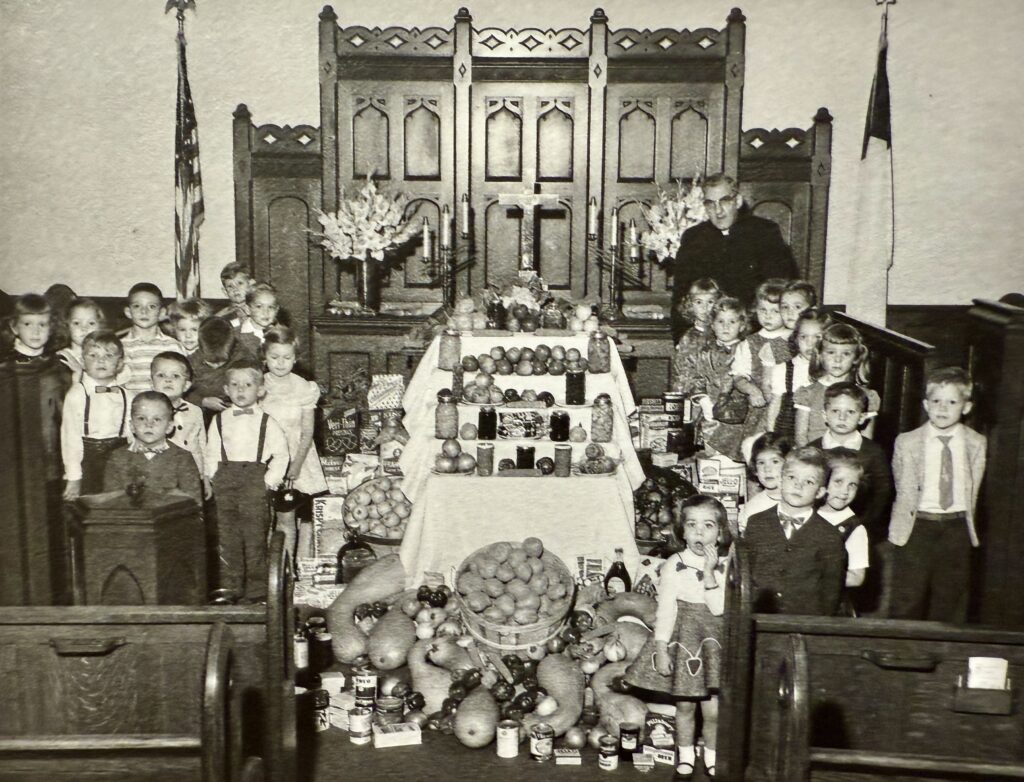
In 1940, Derry Church began holding a Harvest Home Festival in support of the Newville Home. At the worship service, Derry collected home canned fruits and vegetables, potatoes, onions and turnips, staple groceries including coffee, tea, cereals, flour, sugar, rice, and macaroni, kitchen and home supplies (table linens, towels, bed linens, books and sick room supplies), and gifts of cash.
This event was held for many years, and the goods were delivered to the Newville Home in time for its annual Harvest Home Day.
World War II sparked a broader awareness of and interest in the needs of the larger world. During the war, money was directed to the Wartime Service Fund and to Chinese relief. The Women’s Missionary Society offered mission study classes during Wednesday nights in November and. January, each month studying a particular group or issue such as Migrants or China to raise awareness of the worldwide need for financial support.
MISSIONARY SUPPORT
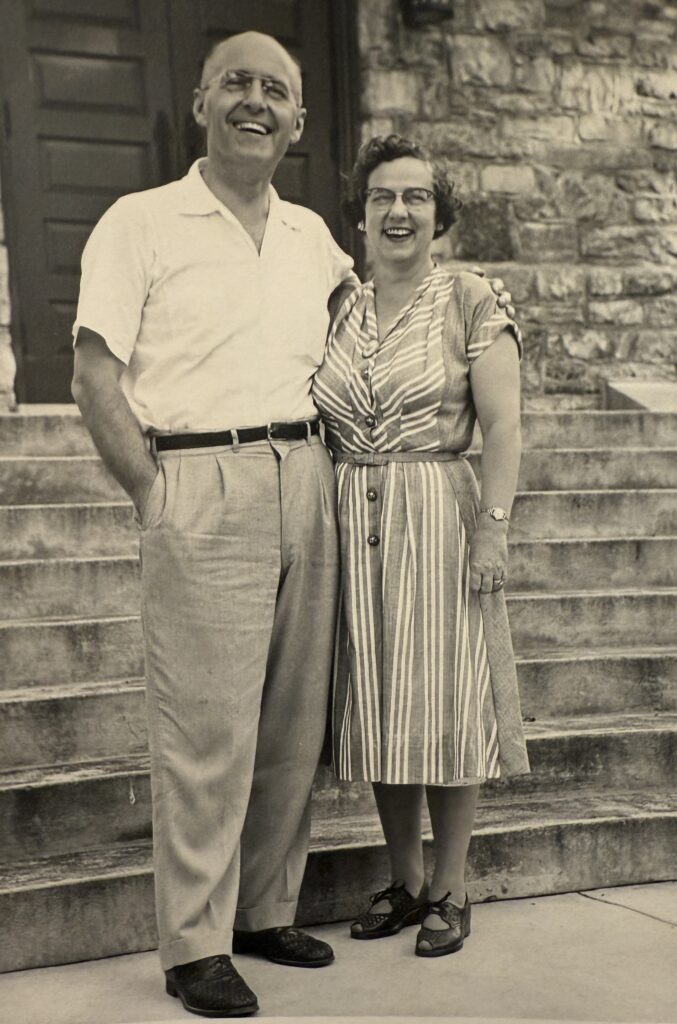
In a similar fashion, the church identified two missionaries to receive mission contributions. Because the church’s mission dollars were divided between international and national mission projects, missionaries based in Arizona and in Iran received a significant portion of Derry Church’s mission dollars. These missionaries provided a personal connection between Derry and the mission world. Reverend Crouse Perkins served a rural community near Phoenix, Arizona, and Reverend Robert Bucher (pictured) served a church in Resht, Iran. Derry Church communicated directly with both mission efforts and provided additional support when unexpected challenges arose.
During these years, Derry’s women’s groups also became personally involved with particular charitable efforts, sending boxes of clothes and Christmas boxes to Mont Alto Sanatorium in western Pennsylvania and the Asheville Farm School for Boys in western North Carolina. In later years, women who enjoyed quilting gathered to create quilts that would be sold to raise money for mission.
These varied efforts towards supporting mission with charitable contributions continued into the 1960s. Derry members continued to make separate pledges for church operations and benevolence until 1966, when separate pledges were eliminated in favor of a consolidated church budget. A few years later, the Sunday School budget was also consolidated into the overall church budget.
Derry Church’s approach to supporting mission was largely limited to financial contributions, along with donations of clothing and food to local charities. While members may have been personally involved in supporting local charities with hands on help, there was no movement in the church to provide such opportunities until the late 1980s.
PEACEMAKING: HANDS TO WORK
In 1986, a peacemaking task force formed in response to interest raised by the adult class’s study of peacemaking . This new group communicated opportunities for learning more about and acting on “things that make for peace.”
Peacemaking efforts were not limited to adults. For Christmas 1987, the 6-8th grade class organized Derry’s first “Giving Tree,” which provided gifts for 50 children. In addition, Presbyterian Women provided 50 Christmas stockings to the Dauphin County Manor nursing home.
Derry’s commitment to peacemaking led Session to establish Peacemaking as a standing committee and allocate $10,000 as a Designated Mission Fund. The Mission and Stewardship Interpretation Committee was responsible for determining how these funds should be distributed. Funds were donated to local charitable organizations and used to support church-organized mission trips. Derry was particularly supportive of its younger members. Church funds sent several of Derry’s youth on Presbyterian Synod mission trips to Alaska.
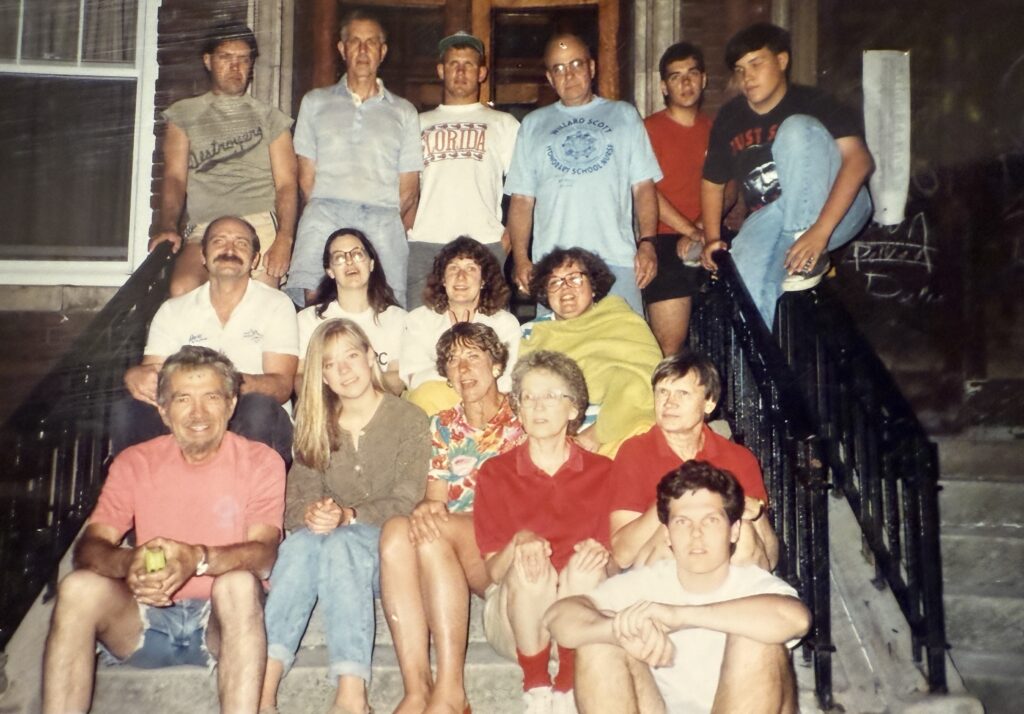
The desire to do more to serve others continued to grow. Derry members sought out opportunities to help using their hands as well as their dollars. Led by Derry members Dale Ferguson and Ann Kroh, on June 20, 1989, 20 Derry members traveled to Yonkers, NY to spend a week working on a low income housing project to help reconstruct, scrape, and paint houses in need of rehabilitation (pictured). This project was organized by a local nonprofit organization, SWAP (Stop Wasting Abandoned Property). Derry Church continued to send mission teams to help rehab houses in Yonkers for several years. When the founder, Bill Daniel, established a program in Nicaragua, Derry followed.
That same year, Lend A Hand, a local disaster response and assistance program was established in response to the devastation of Hurricane Hugo. Derry member Skip Becker and John Daem, a member of Faith Presbyterian Church, envisioned a program that would send volunteers to help communities recover from natural disasters. In 1990, with the support of Christian Churches United, Pine Street Presbyterian, and Derry Church, Lend A Hand first sent volunteers to McClellanville, South Carolina to help residents rebuild homes and their community. In the following years, Derry Church and its members continued their support of Lend A Hand with funds and volunteers.
During the 1990s, Derry Church continued to expand its commitment to serving others. Derry became actively involved with Harrisburg poverty programs such as Bethesda Mission, Downtown Daily Bread, Harrisburg Boys and Girls Club, Meals on Wheels, Hershey Food Bank, and Derry Township Social Ministry.
The church continued to send volunteer teams to Yonkers and then to Mexico and Nicaragua. These trips not only helped support the communities by helping to construct well-built homes for residents but also provided volunteers an opportunity to know and appreciate another country and culture. Many of Derry’s mission projects were opportunities for parents to volunteer along with their children. In particular, the mission trips to Nicaragua usually had a few parent-teenager teams participating.
To highlight Derry’s commitment to serving others, Mission Week was established in 2000. Held in June, the week offered a variety of mission-focused opportunities for the congregation to both serve and learn more about opportunities for mission. Projects ranged from traveling to another country to build houses, traveling to Baltimore to work with Habitat for Humanity, to offering a Vacation Bible School for Milton Hershey School children. Opportunities were available for youth, college students, adults, and senior citizens.
Using the talents we have been given was at the heart of many of Derry’s mission programs. People with building skills volunteered with Habitat for Humanity and participated in mission trips to parts of the country damaged by storm and poverty. Cooks shared their talents to provide food for community meals at Bethesda Mission, Penn National Race Track, Family Promise.
The Shawl Ministry was established in January 2005 by a group of women who found joy in using their talents to create knitted and crocheted shawls and lap robes that were given to members and loved ones who might be ill, or grieving, in a nursing home or homebound, recovering, or in need of comfort. The 2012 group is pictured below.
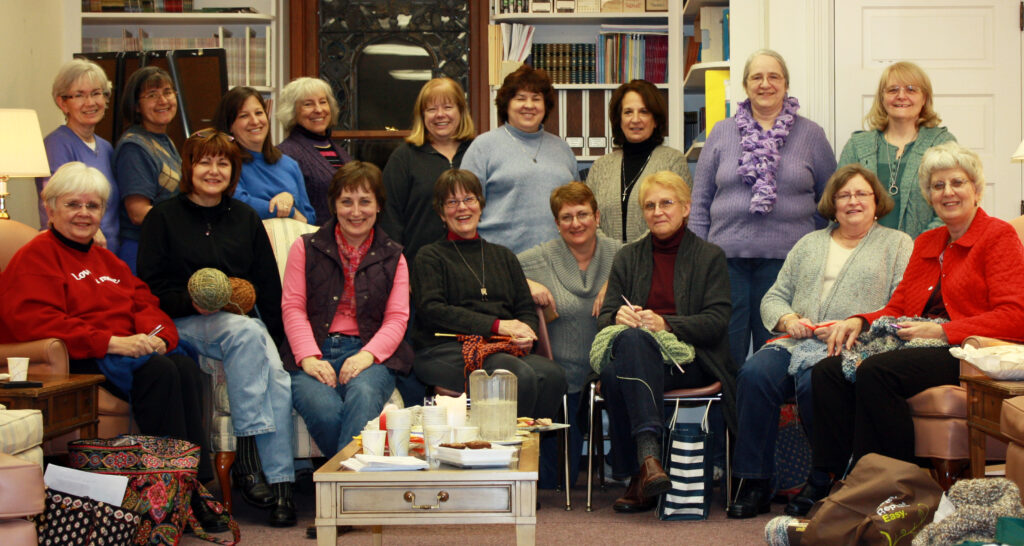
As new opportunities emerged, Derry Church responded. In 2010, the church learned about the Presbyterian Education Board and the schools they operate in Pakistan for Christian and Muslim boys and girls. Debbie Hough, then Director of Christian Education, visited the schools in Pakistan and returned home to propose that Derry Church help support this mission by providing scholarship money for girls to attend the school in Sargodha. Several members traveled to Pakistan to learn more about the schools and how Derry’s support was making a difference there. Derry’s support grew over the next few years, and in 2019 Derry Church made. a three-year commitment and contributed $456,000 to build a wing on the Sargodha Boy’s school.
Members often bring new ideas and mission projects to Derry. In 2016, Logos Academy, a Christ-centered community school serving children in Harrisburg, was brought to Derry’s attention by a new member who also served on the school’s board. While Derry’s initial contributions were modest, church members had opportunities to become more engaged, and many volunteer hours have been spent on projects to build and improve classrooms.
In 2017, the Mission and Peace Committee conducted a review of its efforts so that Derry might better align its missional goals with its activities. The committee identified several mission goals, including caring for elders, the homeless, the hungry, and refugees, supporting access to healthcare, funding education for children, and addressing violence against women. With these goals in mind, Derry Church partnered with organizations serving these needs and communities.
The COVID-19 pandemic disrupted most of Derry’s hands-on mission efforts.Derry Church continued to fund its mission partners, but there were few opportunities for in-person mission. However, in 2020 Derry Church organized a Christmas Drive Through event, collecting more than 1,500 pounds of food for the Hershey Food Pantry, and over $4,000 in gift cards that were distributed to racetrack workers or others struggling with poverty. The success of the Christmas Drive-Through led to it being repeated the following year.
In 2022, with COVID restrictions in the past, Derry Church resumed many of its mission activities, including serving meals for Family Promise, Downtown Daily Bread, and the Penn National Racetrack workers. The church again sent a team to the Dominican Republic to build two houses (2023 team pictured). Derry Church celebrated the Christmas season with a “Spread the Love, Share the Joy” drive that collected food for the Hershey Food Bank, clothing for the Allison Hill Community Ministry, and gift cards that were distributed to Racetrack workers, Stop the Violence Ministry, and the Derry Township Social Ministry.
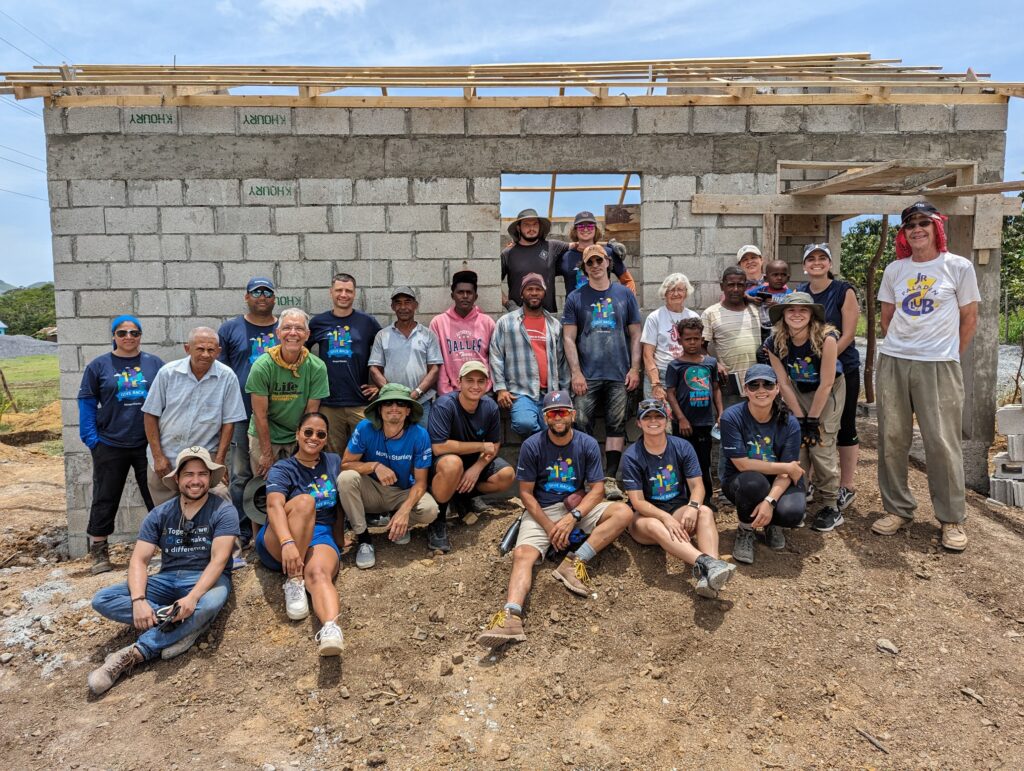
300th ANNIVERSARY
As Derry Church prepared to celebrate its 300th anniversary in 2024, the 300th Anniversary Committee wanted the year to be an opportunity to not only look back but also look to the future. The committee encouraged the Mission and Peace Committee to consider how Derry might make a significant difference in our community in honor of our upcoming anniversary. Their proposal was to support two mission projects: funding the construction of a tiny home in a new community for homeless veterans in Harrisburg, and constructing a 5th grade classroom at Logos Academy Harrisburg so that the school could continue to expand. Derry members raised $100,000 to make both projects possible, while also contributing volunteer hours to help construct the new classroom.
When Derry Church was on the verge of collapse in the late 19th century, friends and the Presbytery believed that Derry was an important part of the Presbyterian family and offered financial support so that a new chapel could be built. Having a sturdy place to worship was an important part of Derry Church being able to reestablish itself and begin to prosper in the 20th century
As part of its 300th anniversary, Derry Church is continuing the tradition of churches helping churches by establishing a fund to support churches in the Presbytery who do not have the funds for needed capital repairs, projects, and growth, just as Presbytery churches helped Derry over a century ago. The “Churches Helping Churches” grant program will provide up to $10,000 to further the mission and ministry of their church. In this way Derry Church hopes to “pay forward” the support so that churches across the region continue to thrive.
Dan Dorty • Director of Music and Organist
December 5, 2024Advent is upon us and Christmas is hastily coming, bringing the warmth of love. Soon we will be rejoicing, singing “Gloria in Excelsis Deo!” I invite you to come to Derry Church this Sunday, December 8 at 3 pm to join the Sanctuary Choir and Derry Ringers as we look to the nativity story, where hope — born of a virgin mother and wrapped in swaddling clothes — was laid in a manger.
We remember that a world once shrouded in darkness has seen a great light! Works include “The Angel Gabriel” for choir and harp, Paul Manz’s “E’en So Lord Jesus Quickly Come,” and Mack Wilberg’s beloved “Gloria in Excelsis Deo,” featuring choir, orchestra, organ, and percussion. Reflecting on Pastor Stephen’s sermon series entitled “How Great Our Joy,” the Sanctuary Choir will perform two arrangements of this well-known tune. The first, arranged by Craig Courtney, is for choir and string quartet, gently building to the final stanza. The second arrangement, by Mark Grizzard, employs mixed meter and a brisk tempo, incorporating choir, four-hand piano, and drums to enliven our spirits.
As we reflect on those surrounding the Christ child, we will sing “We Three Kings,” “Lo, How a Rose E’er Blooming,” and Seth Bingham’s stunning setting of “Away in a Manger.” The Derry Ringers will perform Douglas E. Wagner’s jubilant “My Spirit Be Joyful” arranged from Johann Sebastian Bach’s Cantata No. 146, along with Sandra Eithun’s beautiful arrangement of the beloved “O Holy Night.”
The congregation can look forward to singing familiar carols accompanied by the organ and orchestra, including “O Come, All Ye Faithful,” “Angels We Have Heard on High,” and John Ness Beck’s arrangement of “Joy to the World.” Featured soloists from Derry Church will include Charley Miller (Bass), Janice Click Holl (Soprano), Julie Miller (Soprano), and Loren Geeting (Tenor). A handbell quartet from the Derry Ringers will perform “What Child Is This?” in an exciting arrangement by Kevin McChesney.
Come hear the story of the manger set to music, and let us reflect on the true meaning of love at Christmas. Lift your voices this joyous Christmastide with the choirs of Derry Church as we celebrate the birth of our Savior, Jesus Christ. Join us and prepare your hearts for the love that has come down at Christmas!
Lynn Porter • Derry Member
November 27, 2024Editor’s Note: On the first Thursday of each month, the eNews feature article highlights the mission focus for the month. In December we’re lifting up the Christmas Joy Offering.
The Christmas Joy offering has been a cherished Presbyterian tradition since the 1930s. Each year during the Advent and Christmas season, it addresses the support needed by some of our church leaders, current and retired, in their time of need. It aids future leaders at Presbyterian-related schools and colleges, equipping communities of color.
Joy is a powerful asset to have in our lives. There are many benefits that this emotion provides. Trusting God, valuing God’s work, and God’s presence in our lives. Experiencing joy can promote a healthier lifestyle, boost the immune system, fight stress and pain, and support longevity. In the midst of life’s challenges, this can provide the strength of the Holy Spirit within us.
Each year the Mission and Peace Committee designates a recipient in our community that presents a need to receive a portion of the Christmas Joy Offering. This year’s recipient is Gather the Spirit for Justice. This non-sectarian organization, located in the Allison Hill area of Harrisburg, is not new to Derry. Gather the Spirit for Justice provides essential support for an underserved community. It connects people with services and helps them to see their worth and value as human beings. It provides a safe environment for the neighbors in the Allison Hill area to gather, have breakfast, share conversation, and learn about services offered by the Gather the Spirit for Justice staff and volunteers.
Currently, First Church of the Brethren is Harrisburg is assisting Gather the Spirit for Justice by providing space in their fellowship hall on Saturday mornings. Some of the services provided besides a full breakfast on Saturday mornings include a toiletries closet where folks can select two items at a time, and English as a Second Language instruction. In addition, because people were having difficulty obtaining photo ID’s, drivers licenses, and birth certificates, aid is available to help them through the process. This in turn enables people to gain employment, apply for public assistance, cash a check, apply for housing and to receive medical care.
The numbers of those attending the complimentary breakfasts has increased dramatically. To date, numbers have reached nearly 200 served on a Saturday. This has been steadily increasing over the last three months.
In this joyful season, be a blessing to others. Be generous! Promote joy so the underserved can endure life’s difficulties, having hope that a better day is coming.
Kendall & Allison Cooper • Derry Members
November 21, 2024My sister and I, along with other youth from our church, were blessed with the amazing opportunity to spend more than a week in Ireland this summer with the support of Derry Church. Going into the trip, we both admitted we were a little nervous. Not only because we had never traveled internationally before (& I was never even on a plane) but also, since COVID, our participation in the church had unfortunately decreased. Even after in-person church services resumed, we initially continued to watch church from home and became less involved in the youth group and with the congregation.
When the opportunity for the Ireland trip first came about, we were interested, but after not seeing a lot of our church friends for a while, we were nervous about how the trip would go. We worried they may have all grown stronger connections together during our absence and we were scared to venture outside our comfort zone. After some discussion, we both agreed that if we went, we would have each other and it would give us the opportunity to rekindle past friendships.
Following the Ireland trip, we have never felt more a part of our church community. This trip not only reconnected us with our church friends, but helped to reconnect us with God and the rest of Derry’s community, and even new friendships. We have been going to Derry Church since we were born, but we have never felt as connected to the congregation as we do now.
Our time in Ireland taught us the importance of coming together as a community and since then, we have been able to include it in our daily lives. In school, work, and church, we make new connections all the time and work to connect others through God’s love.
We have also started to increase our service in the church and community again. Allison works in the nursery every Sunday and has created incredibly strong connections with the kids. Kendall gets to connect with members of the congregation on Sundays through conversations with people, often about their shared love of sports, including basketball and field hockey.
Looking back on our trip, we cannot thank God and the church enough for giving us the opportunity to go to Ireland. We will never forget the wonderful memories and lessons we learned, and we will never lose the special bonds we made with everyone on the trip. Sometimes life takes us away from things that really matter, but through God, service, and our community, we can always find our way back.
C. Richard Carty • Derry Member
November 14, 2024After World War II, Americans looked forward to peace and unity, but it was not to be. The Cold War, as well as the Civil Rights and Women’s Rights Movements disrupted America’s sense of peace and harmony.
Derry Church, for 300 years, has endeavored to promote peace and welcome all. The decades after the war provided many examples.
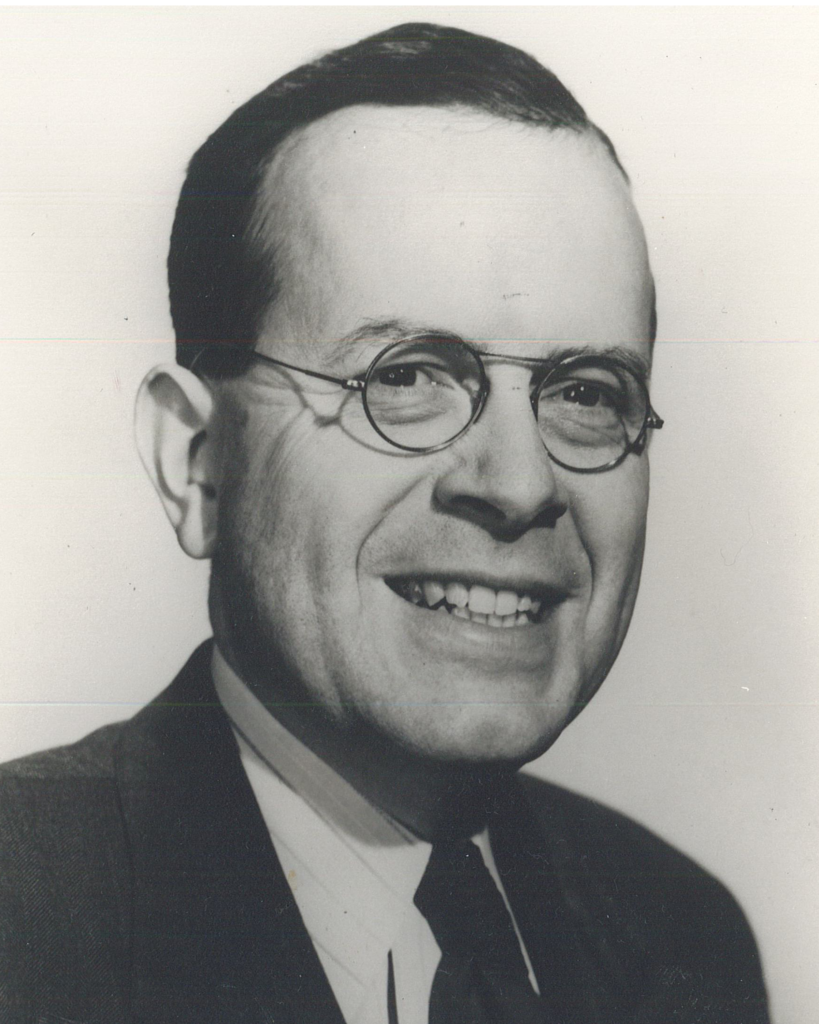
Derry’s pastor, Reverend William Longbrake, who had been called to Derry Church in 1941, helped Derry transition from wartime to peace. During his tenure membership grew from 312 to 533 members.
As membership increased, Derry Church sought to broaden church leadership. In 1947 Session voted to recommend to the congregation that a “Rotary System” be instituted for the election of officers. Traditionally, Elders had been elected by the congregation for three years and could be re-elected immediately to succeed themselves when their terms expired. Under the Rotary System, Elders would not be eligible for re-election for at least one year after serving a full term. This expansion of church leaders continued during the 1950s. In 1957 Derry elected its first women to serve as Deacons. However, it wouldn’t be until 1970 that Derry would elect its first female Elder.
As the United States emerged from World War II, the church began planning to expand the building to meet the needs of a rapidly growing congregation. In 1946 a building committee began assembling a list of wants and needs for a new building. Initially, Derry member Maurice Glace, a draftsman with Hershey Lumber Company, was asked to draw up plans. These plans were reviewed and revised over the next two years, but no final design was approved.
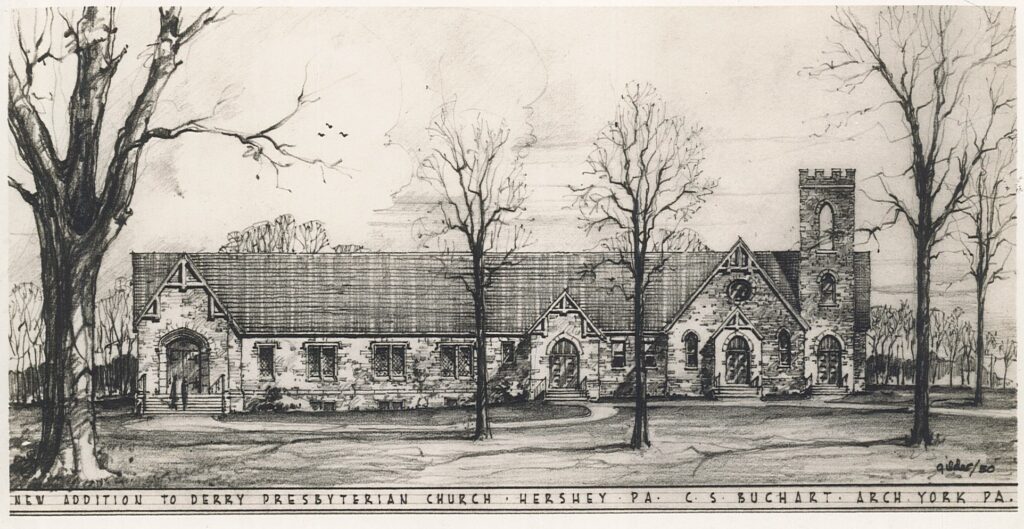
In 1948, the committee decided that a professional church architect was needed. Derry Church selected C.S. Buchart, a York, Pennsylvania architect, to design an addition to the Chapel. Mr. Buchart designed an addition that matched the original chapel in materials and architectural style while providing a modern plant for educational and social activities. In addition to plans for the Christian Education addition, Mr. Buchart also sketched out a vision to expand the church in the future with a new, larger sanctuary, if the congregation continued to grow at its current rate.
At a 1950 congregational meeting, members voted to approve plans to add a Christian education wing to the Chapel. Derry broke ground for the addition on October 29, 1950, and the cornerstone was laid on April 22, 1951. The building was dedicated seven months later, on November 11. This was the second addition to the 1884 Chapel, the first being the John Elder Memorial Chapel in 1935. The addition created a new entrance and foyer, and added a nursery and children’s classroom, as well as office space on the main floor. The new lower level had a large social hall and a modern kitchen. The addition made it possible for the church Sunday School to continue to expand with additional classes and provided space for the church to gather together in fellowship.
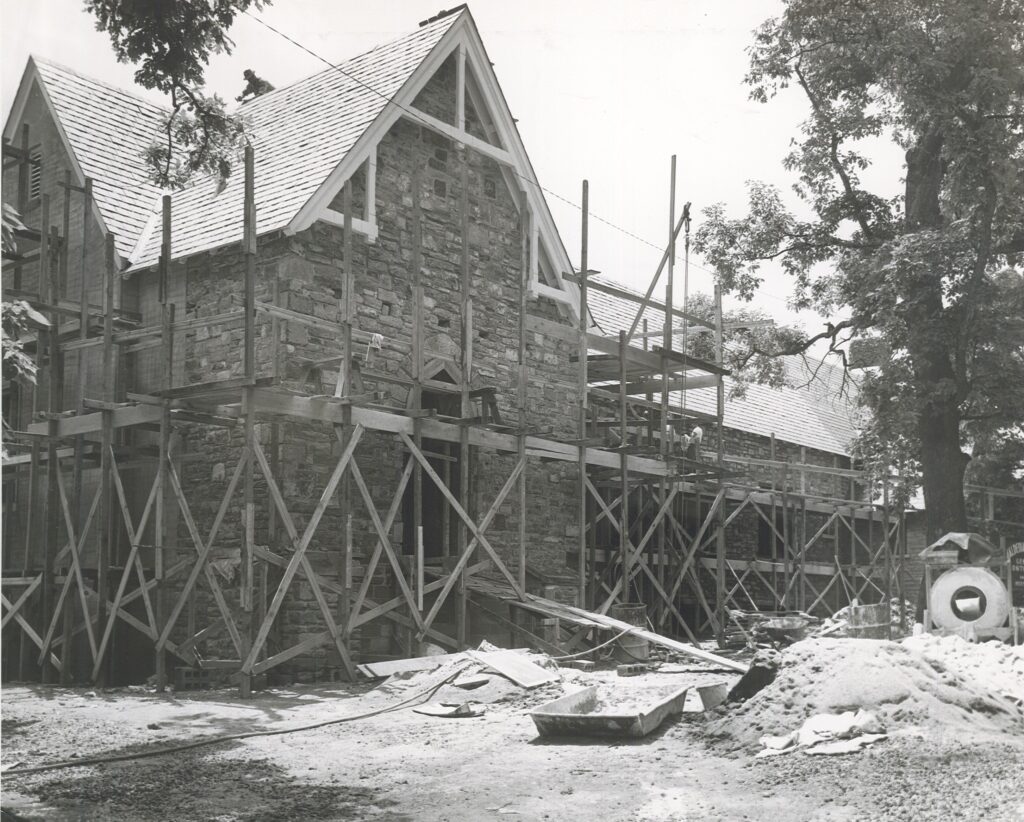
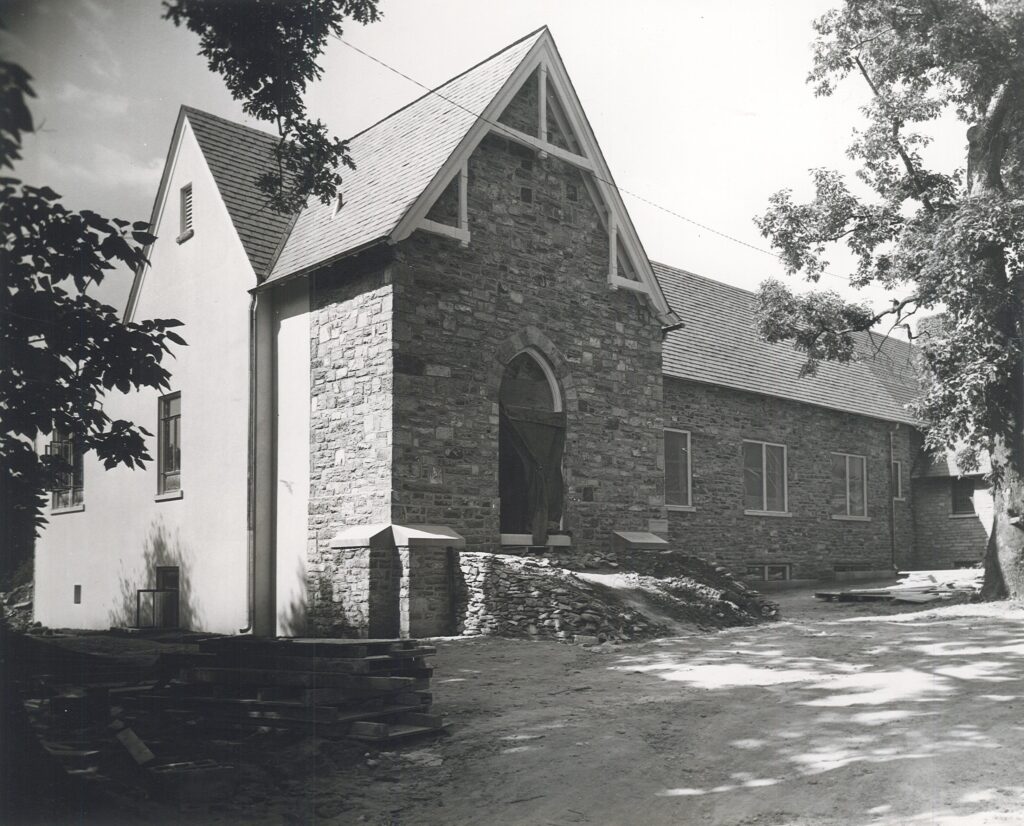
In 1950 Reverend Longbrake resigned to take another call. He was succeeded by Reverend William Sheldon Blair, who was installed on October 12, 1950. The congregation approved an annual salary of $3,800 plus a contribution to his pension, use of the manse, a car allowance of $400, a one-month vacation, and moving expenses.
Reverend Blair knew when he accepted the call to Derry Church that a building program to add an Educational Building was planned and that a Building Committee was already in place. During his first years he led the congregation to raise money for the new educational building with a variety of creative activities. Of course, there were congregational pledges, but at that time Hershey Park Pennsylvania Dutch Days had been recently launched (1949) and quickly became a popular week-long summer event.
Dutch Days created an opportunity for community organizations to support this event. The Dutch Days venue offered limited opportunities for visitors to purchase snacks and meals. Derry Church, located just a few blocks away from Dutch Days activities, offered meals for sale with a Pennsylvania German theme: chicken pot pie, ham and beans, roast beef and filling. The church also provided transportation between the church and Hershey Park to facilitate access. Other fundraising activities included a public Auction Sale in May, 1951 and the distribution of small wooden banks resembling a church (made by men on the Little Church Bank Committee) to children and adults in the congregation to encourage their participation.
The church’s efforts at fundraising were quite successful. On Thursday, February 2, 1956, just four and a half years after the building had been completed, a Recognition and Mortgage Burning Dinner was held in the new downstairs social room to celebrate the Church’s freedom from mortgage debt.
Derry Church had been built in pieces over the years beginning with the 1884 Chapel, which had been expanded in 1935. The need to replace worn carpeting and do general repairs to the older sections of the church became more obvious after the Christian Education Building was completed in 1951. Session authorized improvements to Derry Church in 1955, old carpeting was replaced, pews and floors were repaired and a much needed humidifier was also purchased.
The condition of the 1933 Chapel organ was such that Session members wondered if a new organ should be purchased or if that purchase should wait until when and if a new sanctuary was constructed.
The early 1950s saw the United States engage in a “cold war” with the Soviet Union and send its military to the Korean conflict. Carlisle Presbytery, concerned about the war, asked its churches to have a day of prayer for men behind the Iron Curtain.
At home, Hershey struggled with labor relations. In April 1953, Hershey Chocolate workers went out on strike over wages and a demand for a closed Union shop. Seeking to not take sides, at their May 1953 meeting Derry’s Session forbade Reverend Blair from attending any union meetings.
Reverend Blair resigned from Derry Church in January 1959 to accept another call to a church in Johnstown, Pennsylvania. While a search for his replacement was immediately started, Reverend George Evans served as Interim Pastor. In July Reverend Ira Reed was installed as Derry’s pastor.. The church continued to grow even though it was a time of conflict and division in our nation and the world.
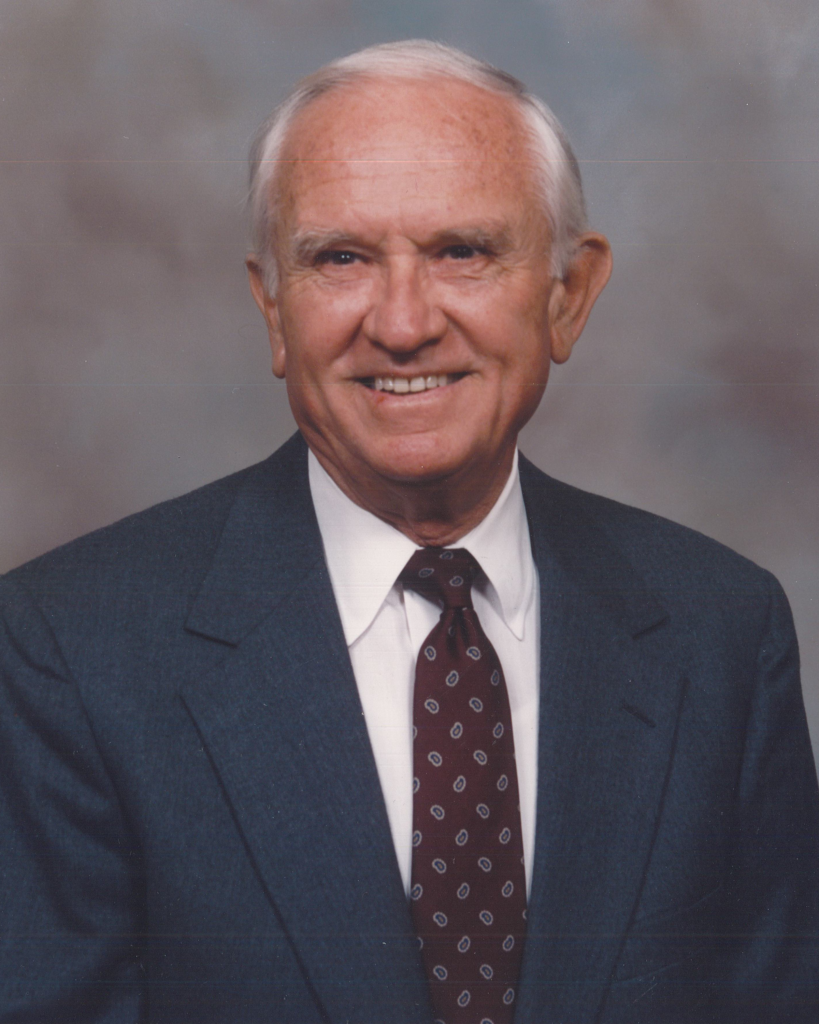
In addition to his excellent preaching, Reverend Reed is remembered for his organizational leadership and emphasis on neighborhood evangelism. He was actively involved in community organizations and was a member of the Hershey Rotary Club, the Police Advisory Board of Derry Township, and a Trustee of Wilson College (Chambersburg, PA). In addition, he was a PIAA official for wrestling and football.
Under Reverend Reed’s leadership, Session meetings became more organized, the number of elders, trustees and deacons was increased from eight to 12, and women became part of Derry’s leadership team. In addition, session committees were improved. The arrival of a new and energetic pastor again spurred expansion in Derry’s membership. By 1964 the church had grown to almost 800 members.
Though political assassination and social disruptions in the nation characterized much of the 1960s, Hershey and Derry Church were little affected. While there was awareness of national events, Derry Church’s concerns focused on the need for more space for Sunday school classrooms and a larger sanctuary to accommodate the growing congregation. In 1962 a building committee was appointed and by the end of 1964 a contract was signed to begin construction. Completed and dedicated in January 1966, the new Sanctuary included the purchase of a new organ. The Reuter organ was dedicated to the memory of a former pastor, Commander George Snavely Rentz, Chaplain, United States Navy. Commander Rentz served Derry 1913-16. He had left Derry in 1916 to serve as a Navy Chaplain during World War I. He continued to serve as Chaplain during World War II. He lost his life when the U.S.S. Houston was sunk during battle. Rentz was one of the last to leave the sinking ship and gave his life so other, younger, sailors might live.
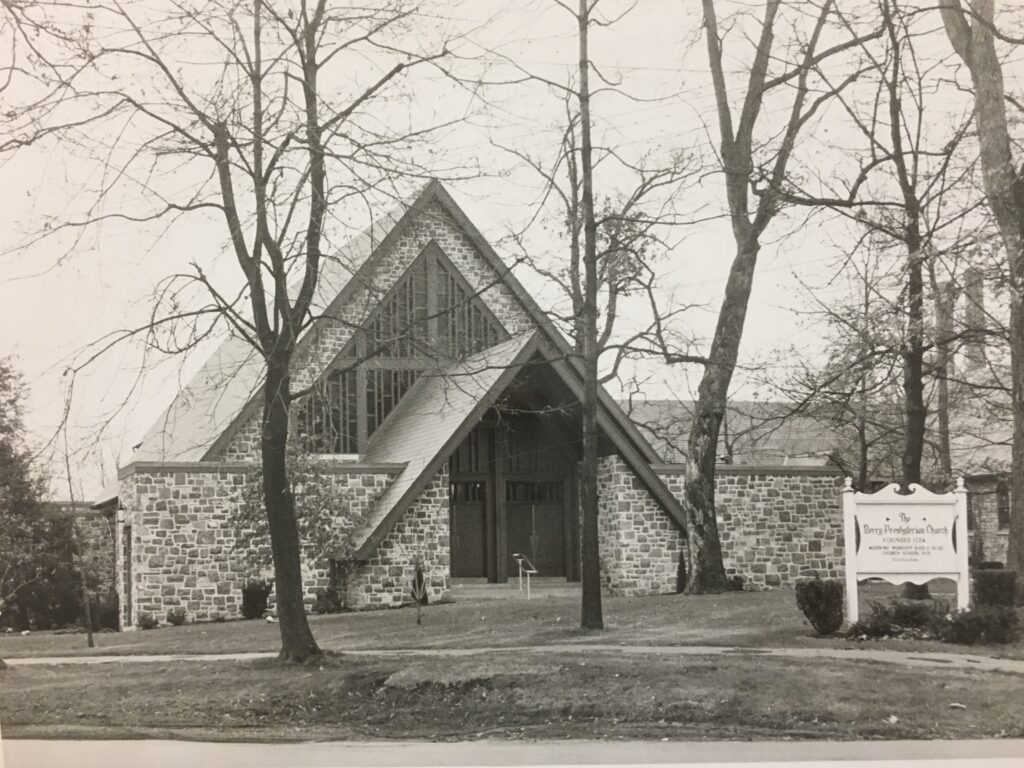
That same year the congregation approved the purchase of a property across the street for the purpose of expanding parking for the church.
Concurrent with plans to expand church facilities, the need for additional staff was becoming more urgent. Derry’s music program was growing and it was felt that a part-time organist was not sufficient for the church’s needs. In June 1963, the Music Committee recommended hiring an organist and a choir director. Richard Chubb was hired as organist and Virgil Anderson was hired as choir director.
After a review of Derry’s Sunday School by Carlisle Presbytery, it was recommended that Derry Church hire a part-time administrator. Derry member Harold Reichard volunteered to serve as the chair of the Christian Education program from September 1964 to September 1965. In his report to the Session, Reichard recommended that the position become full-time. In March, 1967 Reverend Robert Murphy was hired as Assistant Minister for Christian Education. Reverend Murphy served two years before resigning to accept another position. A second pastor, Reverend Paul O. Altaner, was hired, but he also resigned after not quite two years.
Finally, Derry Church created a new position, Director of Christian Education, and hired Nancy Joiner, a recent Grove City College graduate, to fill the position. At the same time Derry Church created a full-time Director of Music position and hired Herb Fowler. Both people brought new energy, ideas, and opportunities for music, youth engagement, and Christian education.
Greg Taylor • Chair, Stewardship & Finance Committee
November 7, 2024
If you’re like me, during the past few weeks you’ve received a lot of messages from political candidates, on both sides, asking for money. In the midst of this, Derry Church is running our own stewardship campaign.
While important issues are on the table in this election, I want to remind everyone that we have the chance, right here, to create something more enduring and powerful through the mission of Derry Church: proclaiming God’s word, sharing God’s love and practicing God’s justice. We can do this through donating our resources, whether it be our skills, time, or money.
This year’s Stewardship Campaign theme is Share the Love that Shapes Us. I think about how God’s love has shaped me and my family through Derry. Of course, the church is how I met Lee Ann. Natalie, Jacob and Emma all grew up at Derry – active in youth group, choirs, and even the trip this past summer to Northern Ireland – and that has shaped them. Singing in choir, serving on Session, and now as Chair of the Stewardship and Finance committee has shaped me.
Now, how do we share this love with others? That is where your help is needed. As I write this, we are less than half way to reaching our campaign goal. You can help make the mission of Derry Church a reality by providing your estimate of giving either online, by mailing back the card you received in the mail, or picking up a card at church on Sunday. Or bring the card with you on Sunday and drop it in the offering plate during the service.
I invite everyone to a soup and salad lunch in the Fellowship Hall following the service. There is no charge, but you can bring dessert to share. There will also be a fun activity (with prizes) after lunch!
Thank you and God bless.
Rev. Matthew Best • Pastor, Christ Lutheran Church in Allison Hill & Executive Director, Health Ministries of Christ Lutheran Church
October 31, 2024Editor’s Note: On the first Thursday of each month (or close to it), the eNews feature article highlights the mission focus for the month. In November we’re lifting up Access to Health Care.
Every Wednesday, I sit in the waiting room of the medical outreach clinic wearing my clerical collar and a simple sign which reads “Free Prayer.” I’ve been doing this regularly enough that there are what I call “regulars” who come in to talk and pray with me. They tell me about their families, their struggles with addiction, trying to stay housed or gain employment, and physical healing they need. It’s a time I wouldn’t trade for anything.
One particular Wednesday, the door to the waiting room opened and a man stuck his head in and said, “can someone help me?” The nurses were all occupied on the other side of the clinic and didn’t hear the man. I went over to the door, opened it to the stairway, and found the man sitting on the steps, shirtless. I said, “Can I help you?” He responded, “I need a shirt.” It was clear that he needed more than a shirt. I went and got a nurse to help the man. It turned out the man had overdosed on a drug. The nurses helped him as much as they could, which included calling an ambulance for additional assistance. All this effort saved his life that day.
Our free dental clinic has been busy as ever. After one particular dental clinic day, the dentist on duty told me that they worked on a patient who required seven extractions which helped prevent infections. That’s a lot of work on one person. And it’s the type of care that will offer healing not just for their mouth but for the whole person. Thinking about their time at the clinic, this same dentist told me, “I love my days at the clinic.”
I often talk about Christ Lutheran Church as a wheel, where healing is the axle that everything is connected to. The health ministries, comprising our three free clinics, offer healing in a variety of ways – physical, mental, and emotional. They are a vital healing presence in Allison Hill and the larger community. Each month between 800-1000 people visit our clinics to receive this healing.
In the coming months, we will be undertaking the replacement of some old plumbing that serves the medical outreach clinic. In the spring, we’ll begin much needed repairs to the bell tower which flanks the sidewalk people use to access the medical outreach clinic. We’re also looking forward to hosting another work day for a group of volunteers on Martin Luther King, Jr. Day who will be working on some paint projects. And we are finalizing our plan for an exciting expansion of our dental clinic, moving it from the second floor down to the first floor. This will improve access to care, as well as help us meet more needs. Currently we are only meeting approximately 50% of the need.
We couldn’t do this without your support. I’m grateful to Derry Church for all the ways that you support the health ministries. You are a blessing and you make the healing possible.
Austin Pease • Derry Member
October 24, 2024
I was born into the church. Baptized at a young age, I can hardly remember a Tuesday afternoon I didn’t spend at Derry during my grade school years. Church gave me many of my fondest memories, and helped me develop many of my proudest character traits.
Derry gave me a lot, and I tried to give back. I contributed to helping the A/V team, I shared my worship and prayer, and joined in joyous music. However, this all came to a sudden halt when COVID hit. My parents moved to a different church, and I joined them there, but it just wasn’t a fit for me. So I decided to come back to Derry, but I was afraid. It had been well over a year since I had gone. Would I recognize anyone? Would anyone still remember me? Would I be alone in the pews?
My fears were strong, yet they were no match for the overwhelming love I felt from Derry upon my return. Countless members came up to me to share how overjoyed they were to see me. But this love wasn’t exclusive to those who recognized me. Some didn’t recognize my long hair, my patchy facial hair, and still came up to me with kindness to share with me.
There was so much love that I knew I couldn’t keep it all to myself. I needed to take this love Derry gave me, and share it with the congregation, the community, and even the world at large. I made myself a more active member, working at the A/V desk again, and joinin the youth group on any service events I could attend. And still, Derry kept showing its love for me. Members continued to notice my contributions, and would continually come to me with praise and adoration for even the smallest of things. So I kept contributing as much as I could. I volunteered at VBS and worked as an A/V intern over the summer.
And still, my cup runneth over. I was able to go to Ireland in June with the Youth Group due to the church’s love for its youth, and its contributions of time and money. There, I was able to help share the word of God, and work on my own personal and professional development. This unrelenting cycle of unconditional love from church to member to community started long ago. I was born into the church, and that was the greatest act of love I can imagine. At a young age, I didn’t realize it, but the love and joy that makes Derry so special was all around me. To middle school Austin, this love actualized itself in the chicken nuggets and mac and cheese at Terrific Tuesdays and I shared my love and joy with the congregation by asking absurd and hilarious questions during the conversation with children (or so I’m told).
Today, my cycle of love looks very different, and sadly involves less chicken nuggets. But, I hope that my story, and my life, is proof that sharing God’s love for God’s children is a domino effect that can lead to a greater congregation and community, and can even have an impact on the whole world.
C. Richard Carty • Derry Member
October 17, 2024With the 1929 stock market crash and the resulting depression, Derry Church faced many challenges including a delay of the planned expansion of the Chapel due to limited funds.
The worldwide economic crisis did not hinder Derry members from continuing the church’s operations and commitment to supporting Christian education and mission work.

Reverend Taylor resigned as Derry’s pastor on June 27, 1932, after serving for 16 years. His reason for resigning was that he felt that Derry Church desired a younger man to lead the church. He was 72 years old.
The next pastor to serve Derry was Reverend John C. Corbin, who was installed as pastor in August 1932. Reverend Corbin was 27 years old and Derry Church was his first call. He brought much energy to his tenure. During his pastorate, his commitment and strong leadership had a dramatic impact on the growth of the church.
Derry Church was fortunate to weather the Great Depression fairly well. Thanks to employment opportunities created by Milton Hershey, Derry was able to meet its financial obligations. Studying the church’s financial records of those years, Derry struggled in 1932, having to reduce the sexton’s salary and other expenses, and make a special plea to the congregation that members satisfy their pledges before the end of the fiscal year. With a new pastor, Derry Church turned the corner in 1933.
Reverend Corbin attracted many new families and began to broaden the church’s charitable contributions. Derry Church began its support of the Newville Home, (established 1928), a Presbyterian home for the elderly and infirm located just west of Carlisle.
Derry began to invest in its music program. Purchasing an organ had been part of the pre-Depression plans to expand the Chapel. In 1933 Derry purchased a three-manual Midmer-Losh organ that had originally been built in 1926 for Thomas A. Edison’s Orange, New Jersey recording studio. Interestingly, it was the organ that Charles Seibert Losh, the organ’s builder, had offered to Derry back in 1928. The purchase was completed in 1933 and installed that summer. A formal recital was given on August 24 by Paul Allwardt, a young, up and coming organist at Union Theological Seminary.
As Sunday school attendance continued to grow and the economy improved, ground was broken for the John Elder Memorial Chapel on January 1, 1935. The addition included four classrooms, a kitchen, and an assembly room. With a $20,000 gift from Milton Hershey, a vestibule was added to the Chapel entrance along with new chancel furniture and architectural elements. The church also installed new carpet and purchased furniture and equipment for the new classrooms. The Chapel was dedicated on December 8, 1935.
With the addition of the new transept, Derry was able to create a choir loft. The choir quickly expanded, growing from a few women to 18 members. Rehearsals began in early 1936 with the hiring of Mrs.Robert Young as director. Choir gowns, donated by the Derry Church Ladies Bible Class, were worn starting the following year. The choir quickly became an integral part of worship, providing special music at both Sunday services (10:00 a.m. and 7:00 p.m.), as well as at several community worship services held at the Community Center’s Little Theater in downtown Hershey.
Prior to the 1935 expansion of the Chapel, the church had limited space for other Sunday activities. Derry Church introduced its first nursery for infants to school age children in November 1937. An article in the November 1937 monthly newsletter read:
Little children are always welcome in Church. They never “bother’ the Minister. Nevertheless, it has come to our notice that many parents are hesitant to bring their children who are under school age into the Church services. Therefore, to free parents of young children for Church attendance, we have established a Church Nursery.
For many years prior to the Depression, Derry Church offered a Sunday evening “Lawn Service” in the summer. In 1936, Lawn Services were reinstituted and featured pastors and speakers from the surrounding region. The Lawn Services became very popular and served as an outreach to the broader Hershey community.
As Derry Church expanded, more lay leadership was needed. Prior the 1938, Derry’s Session consisted of six Elders and six Trustees who also served as Deacons. In 1938 Derry Church voted to establish a separate Board of Deacons, who were charged with the pastoral care of the congregation.
Reverend Corbin also encouraged Derry Church’s interest and support of missions. Through the missionary program of Derry Church and the Presbyterian Foreign Missions Board, the congregation contributed to a Chinese relief mission that ministered to 60 million homeless Chinese. A financial report for July and August 1937 indicated total gifts to missionary endeavors to be $119.92. At that time $25.00 would feed, clothe and educate a Chinese youth for one year. Later, Derry Church supported a missionary, Ashbel Green Simonton of West Hanover Township, who served in Brazil.
After eight years of serving Derry, Reverend Corbin resigned in 1940 to accept another call to First Presbyterian Church in Jeannette, near Pittsburgh.
As war clouds spread in Europe and Asia, Derry installed another young and dynamic pastor, William V. Longbrake, on April 25, 1941.
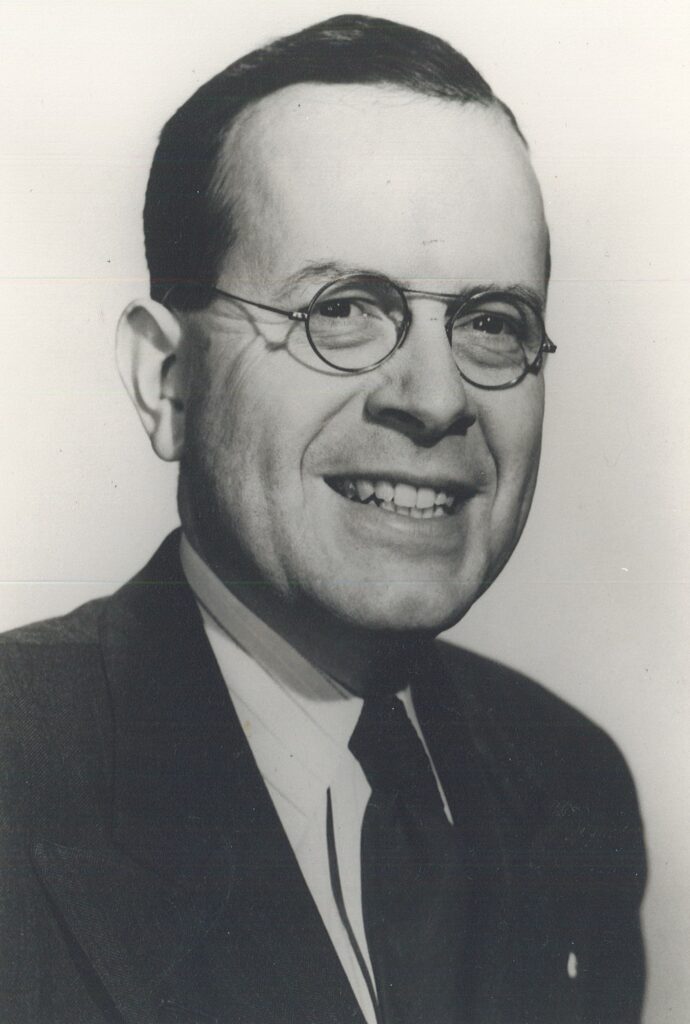
After the attack on Pearl Harbor, the Derry Township Defense Council requested to use Derry’s basement as a wartime emergency first aid station, which was never used. Reverend Longbrake’s pastorate included the turbulent World War II years when 65 Derry members (including three women) joined the armed forces. To help connect with Derry members living away from home, Reverend Longbrake wrote a monthly newsletter, “Today,” mailed to servicemen and students studying away from home. The Deacons also worked to strengthen ties to those away from home. providing a daily devotions book, “Strength for Service to God and Country” to all Derry members serving in the military. At home, a special flag, emblazoned with a star for each member enlisted in the service, was displayed in the Chapel. In November 1946, this flag was replaced with a bronze memorial plaque bearing their names.
While Derry Church had celebrated the Christmas season with a special evening service, gathering as a congregation on Christmas Eve was not introduced until 1944. That year, Christmas Eve fell on a Sunday. This tradition has continued every year since then.
Reverend Longbrake had a keen interest in the history of Derry Church. In 1949, Derry Church celebrated its 225th anniversary with a weekend-long series of events. On October 30, 1949, during a special afternoon service, he spoke about the history of Derry Church and its cemetery. The service included music provided by Hershey Industrial School (Milton Hershey School) Band. Special guests included members of the Pennsylvania Society of Sons of the American Revolution. Following the service, new grave markers were dedicated honoring Revolutionary War soldiers and patriots buried in our churchyard.
Derry Church Sunday School continued to grow during these years. Operating somewhat independently of the larger church, the Sunday School program grew from 351 to 533 members during the 1940s. Programs for teenagers and young adults grew as an important part of Derry Church’s ministry.
Derry Church membership continued to expand under Reverend Longbrake. While the John Elder Memorial Chapel had been expanded in 1935, that addition did not provide adequate space for the growing congregation. By 1950, membership had risen to 506 people and the effectiveness of church programs was limited by the crowded facilities. As Hershey returned to peacetime, Derry Church began discussing plans to expand. Before Reverend Longbrake resigned in 1950, plans to enlarge the church building had already been approved.
Throughout the Great Depression and World War II, Derry continued to serve God and the surrounding community. While people in Derry Township and beyond benefited from Derry’s time, service, and money, new church programs, staff, and expanded facilities helped the congregation to proclaim God’s word, share God’s love, and practice God’s justice.